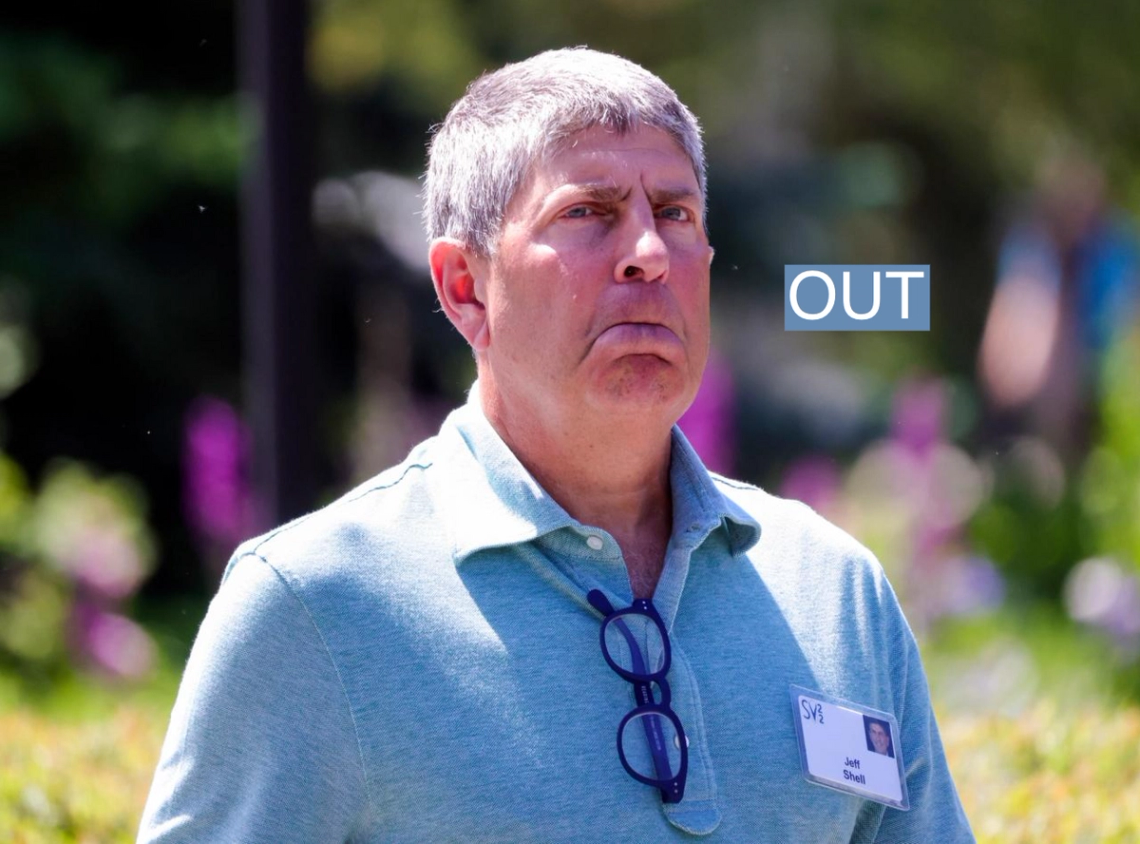 THE NEWS What year is it? Consider the following: - The Drudge Report is the biggest political website in the country.
- Jonah Peretti, a digital media entrepreneur, is focused on building the homepage traffic of HuffPost.
- A class of independent writers including Matt Yglesias and Andrew Sullivan are sharing quick daily posts synthesizing information on politics, media, and technology.
- Washington’s elite are reading Mark Halperin’s DC tipsheet, according to two sources. Several prominent White House reporters are fans, as is the editor-in-chief of Politico, a regular reader.
- New media startups are increasingly finding readers are interested in news directly to their inboxes with scoops and analysis.
- Old news giants, led by the New York Times, are profitably selling exclusive content, from news to crossword puzzles, in a bundle to their paying subscribers.
MAX’S VIEW Homepage traffic, blogging, niche email newsletters. They were some of the foundational concepts of digital media in the early 2000s. And as the digital news media business turns again, they’re increasingly the ones media organizations are turning to. For the last decade, social media websites like Facebook and Twitter were the virtual front pages of the internet, delivering a mix of viral news and whatever articles and videos social algorithms thought you wanted. Digital publications popped up to take advantage of the eyeballs, and money followed, hoping the cat listicle website or the Brooklyn guide for do’s and don’ts could really be this generation’s New York Times or MTV. But Facebook’s sharp turn away from news and the mercy-killing of “blue check” Twitter, along with BuzzFeed News’s shutdown, cuts at Insider (the first official mass layoffs in the company’s history), and Vice’s increasing desperation for a sale are another indication that the social web that defined the 2010s is over for news consumers. And the new era, strangely, resembles an earlier one, suggesting that “the 2010s were a detour, not the new path forward,” as Slate editor-in-chief Hillary Frey put it last week. Just as streaming services start to look a lot like television, news too has turned back to the future. Across the board, many news publishers have noticed that readers aren’t finding their articles on Facebook or Twitter. They’re coming straight to them, loading up the webpages on their phones or desktop. The case of HuffPost — left for dead by Verizon, and now BuzzFeed’s lone surviving news operation — is instructive. Peretti told remaining staff that he was encouraged by the traffic to the homepage of HuffPost, one of the original link aggregators and blogs. Slimmed down by cuts, the liberal site is once again profitable on the back of dedicated homepage readership and advertisers’ willingness to support some of its safer content, which includes lifestyle and identity coverage. “We are going to concentrate our news efforts in HuffPost,” Peretti told remaining BuzzFeed staffers on Friday. “HuffPost is a brand that is profitable with a highly engaged, loyal audience that’s less dependent on social platforms. And as we see the challenges of Facebook and Twitter, the HuffPost homepage will be increasingly valuable to people trying to figure out what’s going on in the world and make sense of the world.” HuffPost isn’t alone. Fox News executives may not be pleased with the $787 million they’ll be forking over to Dominion Voting Systems in last week’s settlement. But they can take some solace in the fact that the outlet’s website, always one of the most trafficked in the US, has experienced a serious bump in traffic in recent months, particularly to the site’s homepage. According to Similarweb stats shared with Semafor by Howard Polskin, president of TheRighting, more than 70% of the site’s visitors last month came directly to the Fox News homepage, with a small chunk from search, and a tiny trickle from social media. For digital media OGs like Josh Marshall, today’s media landscape looks awfully familiar. The site Marshall founded, Talking Points Memo, was one of the earliest political blogs, and cultivated a small but dedicated following in the 2000s with reporting and analysis. But during the social boom, TPM was dwarfed by giants like BuzzFeed and Vice, which gobbled up the small amount of advertising revenue there was for digital publishers. TPM survived the tumult by remaining lean, building an early subscription business by cultivating a medium-sized audience of liberal readers, and refusing to chase scale (Marshall described this to me as “a bit of being smart and a bit of being lucky and a lot of being unwilling to give up the control that I needed to to get the resources to scale in a serious way”). The TPM founder said that in some ways, he has been encouraged by the death of the social web, which drove publishers to chase virality at all costs and sometimes made the relationships between readers and publishers an afterthought. “It’s again made scale not the be all and end all and has made a dedicated relationship between a site and its audience the best hope of survival,” he said. “To me those are all good trends and they generally play to our strengths.” KNOW MORE There’s no point spinning this as a good news story. Most of what’s happening right now is journalists losing jobs. And while the new moment may present a bargain-shopping opportunity for investors looking to buy into media, they aren’t rushing to do so. Over the last year, Group Black, the media collective looking to increase Black representation and ownership of media, has looked under the hood at places like Vice, Vox, and Bustle Digital Group. But the company has not materially increased its offer earlier this year for Vice, and two people familiar told Semafor that the group has essentially backed out of buying BDG. Speaking at Semafor’s Media Summit earlier this month, co-founder Bonin Bough said that he hoped one of the deals could get done, but added that he wasn’t in any rush to buy a media company if prices for the organizations continued to fall. The other active shopper is former CNN chief Jeff Zucker, who now oversees a $1 billion fund from Redbird and Emirati fund IMI to invest in media, sports, and entertainment. Zucker, according to two people with knowledge, has toyed with the idea of investing in this generation of digital media startups. In recent months, he has had conversations with the congress-focused media startup Punchbowl. Puck reported that detail, though it did not mention that he also chatted informally with Puck. Three people with knowledge of Zucker’s thinking stressed that these were preliminary, mostly casual chats”, and that the former CNN chief has his eyes set on bigger deals (It is also worth somewhat awkwardly noting that in the course of my reporting, I was told by two people that Zucker also expressed some interest in investing in Semafor — though I didn’t get any information from anyone here). His name has also been in the mix as a potential buyer for Vice, though people close to the former CNN chief have dismissed that idea. Beyond any bearishness among investors and media companies, part of the hesitation could be that it’s difficult to see around the corner to what the next evolution in digital media could be. “I’m less certain what we’re going back to,” Marshall said. “Is home page traffic coming back? Are people not going to use Twitter or some Twitter clone to serve them their news? It’s clear we’re moving in those directions or the trends of the last decade are kind of broken. But those are now really ingrained habits and I don’t think they’re going to go away quick. I’d love it if they would. But I’m skeptical.” Tina Brown, who oversaw the rocky first years of Barry Diller’s digital media tabloid the Daily Beast, told me she recognized the parallels between the media landscape of the 2000s and today’s retro version. She wouldn’t mind if the news media continued to regress to an even earlier era. “Maybe as we continue to journey ever backwards, next stop is the revival of print,” she said. ROOM FOR DISAGREEMENT As the text internet shrinks, for many consumers outside the elite-news bubble, the replacements are obvious: Podcasts and, most of all, short video. Ask Semafor’s Head of Video Joe Posner: “Even for those of us old enough to have bookmarked Drudge Report or Huffington Post at one point, the front page of the internet is and has still mostly been algorithmically curated – by social media and video apps. These innovations led to the influencer & creator economy that has decidedly won the new media war – so it’s no surprise that writers or like-minded start-ups have joined in on that model. The new system’s failings – particularly those around news and political information – won’t make pretending we can go back any more likely. Those who have embraced new spaces are defining it for the millions of curious minds who will never know the name ‘Drudge’ or ‘Huffington.’” NOTABLE - It’s not just news media where what’s old is new again. Streaming companies ran up against the limits of subscriptions in recent years. Now, executives at those companies believe the future may be free or discounted TV and movie programming interspersed with advertising breaks — just this week, Netflix announced on an earnings call that it was seeing stronger revenue from its advertising tier subscription than expected. Sound familiar?
| 




